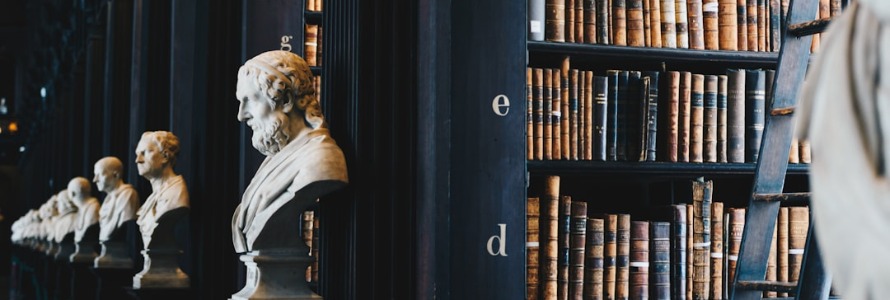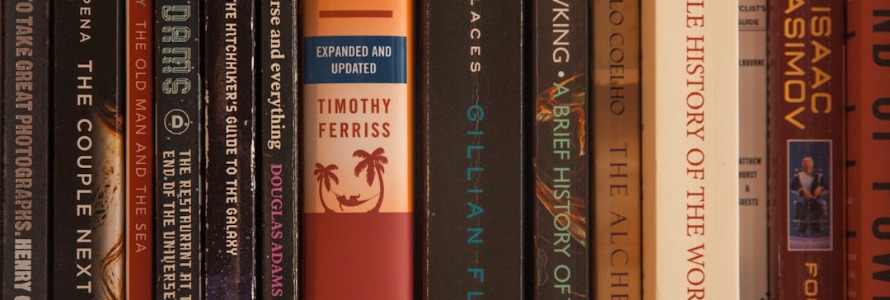
As someone who has always been passionate about social justice and equality, I’ve found immense value in exploring the rich and diverse history of the LGBTQ+ community. Learning about the struggles, triumphs, and progress made by LGBTQ+ individuals and allies has deepened my understanding and appreciation for the movement. Here, I’d love to share some of the most essential reads in LGBTQ+ history that have left a lasting impression on me.
1. “The Stonewall Reader” edited by The New York Public Library
I remember the first time I picked up “The Stonewall Reader.” The book is a compilation of firsthand accounts, diaries, and articles that document the events leading up to and following the Stonewall riots of 1969. This pivotal moment in LGBTQ+ history marked the beginning of the modern LGBTQ+ rights movement in the United States.
Reading these personal narratives, I was struck by the courage and resilience of the individuals who participated in the Stonewall uprising. Their stories brought to life the challenges they faced and the significance of their actions in igniting a larger movement. “The Stonewall Reader” reminded me of the power of collective action and the importance of preserving and honoring our history.
2. “How to Survive a Plague: The Inside Story of How Citizens and Science Tamed AIDS” by David France
David France’s “How to Survive a Plague” is a deeply moving and meticulously researched account of the early years of the AIDS epidemic. I picked up this book out of a desire to understand the impact of AIDS on the LGBTQ+ community and the tireless efforts of activists and scientists to combat the crisis.
One of the key takeaways for me was the importance of grassroots activism and the role of organizations like ACT UP in advocating for medical research and treatment. France’s narrative highlighted the bravery and determination of individuals who fought for their lives and the lives of others. This book reminded me of the resilience of the LGBTQ+ community and the importance of continued advocacy for health and human rights.

3. “Stone Butch Blues” by Leslie Feinberg
Leslie Feinberg’s “Stone Butch Blues” is a groundbreaking novel that offers a deeply personal and poignant exploration of gender identity and the experiences of the LGBTQ+ community in the mid-20th century. I first heard about this book through friends who praised its powerful storytelling and its impact on the transgender community.
Reading “Stone Butch Blues,” I was moved by Feinberg’s vivid portrayal of the struggles and triumphs of Jess Goldberg, the novel’s protagonist. Feinberg’s narrative provided a window into the challenges of navigating gender identity in a hostile world and the importance of finding community and solidarity. This novel reminded me of the power of storytelling in fostering empathy and understanding.
4. “Before Night Falls” by Reinaldo Arenas
Reinaldo Arenas’ “Before Night Falls” is a haunting and beautifully written memoir that chronicles his life as a gay man in Castro’s Cuba. I was drawn to this book because of its reputation as a powerful account of political and sexual repression. Arenas’ story is both heartbreaking and inspiring, capturing the complexities of living under an authoritarian regime while embracing one’s true identity.
What struck me most about “Before Night Falls” was Arenas’ unwavering spirit and his commitment to his art and identity despite immense persecution. His reflections on his experiences as a writer and activist resonated deeply with me. This memoir reminded me of the importance of resilience and the enduring power of creativity and self-expression.
5. “The Gay Revolution: The Story of the Struggle” by Lillian Faderman
Lillian Faderman’s “The Gay Revolution” is a comprehensive and meticulously researched history of the LGBTQ+ rights movement in the United States. I picked up this book out of a desire to gain a deeper understanding of the key events, figures, and milestones that have shaped the movement over the decades.
One of the most impactful aspects of “The Gay Revolution” was Faderman’s ability to weave together personal narratives with historical analysis. Her exploration of the legal, social, and political challenges faced by the LGBTQ+ community provided valuable insights into the progress made and the work that remains. This book reminded me of the importance of continued advocacy and the need to honor those who have paved the way for future generations.
6. “Sister Outsider: Essays and Speeches” by Audre Lorde
Audre Lorde’s “Sister Outsider” is a powerful collection of essays and speeches that explore themes of identity, intersectionality, and social justice. I first encountered Lorde’s work during a college course on feminist theory, and her eloquence and insight left a lasting impact on me. Lorde’s reflections on her experiences as a Black lesbian feminist provided a nuanced and intersectional perspective on the struggles for equality.
Reading “Sister Outsider,” I was inspired by Lorde’s call to embrace our differences and find strength in our shared struggles. Her emphasis on the importance of solidarity and the interconnectedness of social justice movements resonated deeply with me. This collection reminded me of the power of words and the importance of lifting up marginalized voices.
7. “Gender Outlaw: On Men, Women, and the Rest of Us” by Kate Bornstein
Kate Bornstein’s “Gender Outlaw” is a thought-provoking and boundary-pushing exploration of gender identity and expression. I was drawn to this book because of its reputation as a seminal work in transgender literature. Bornstein’s candid and often humorous reflections on their own gender journey challenged conventional notions of gender and inspired me to think more critically about the concept of identity.
One of the key takeaways from “Gender Outlaw” was Bornstein’s emphasis on the importance of living authentically and rejecting societal norms that constrain our true selves. Their narrative reminded me of the beauty and diversity of human experiences and the importance of embracing and celebrating our differences. This book is a powerful testament to the fluidity and complexity of gender.
Conclusion
Books on LGBTQ+ history offer a rich and valuable window into the lives and experiences of individuals who have fought for equality and justice. Each of these reads has left a lasting impact on me, shaping my understanding of the LGBTQ+ movement and inspiring me to think critically about my own role in supporting and advocating for equality.
Through their words, we gain a deeper understanding of the struggles, triumphs, and resilience of the LGBTQ+ community. These books are not just stories; they are lessons in courage, empathy, and the enduring pursuit of justice. For anyone looking to understand the rich and diverse history of the LGBTQ+ movement, these reads are essential.
As I continue to explore the vast landscape of LGBTQ+ history, I am constantly reminded of the beauty and complexity of the human experience. It is through these personal narratives and historical accounts that we can find inspiration, comfort, and a deeper appreciation for the progress made and the work that remains.


